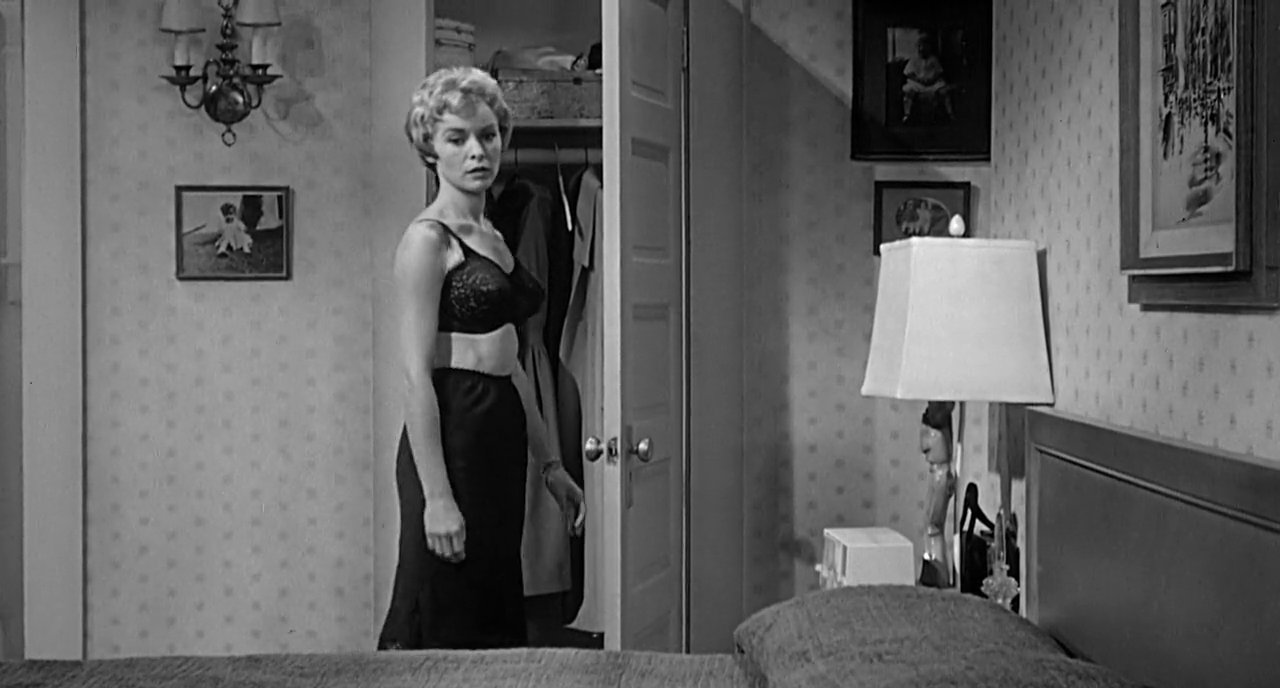by Jason Adams
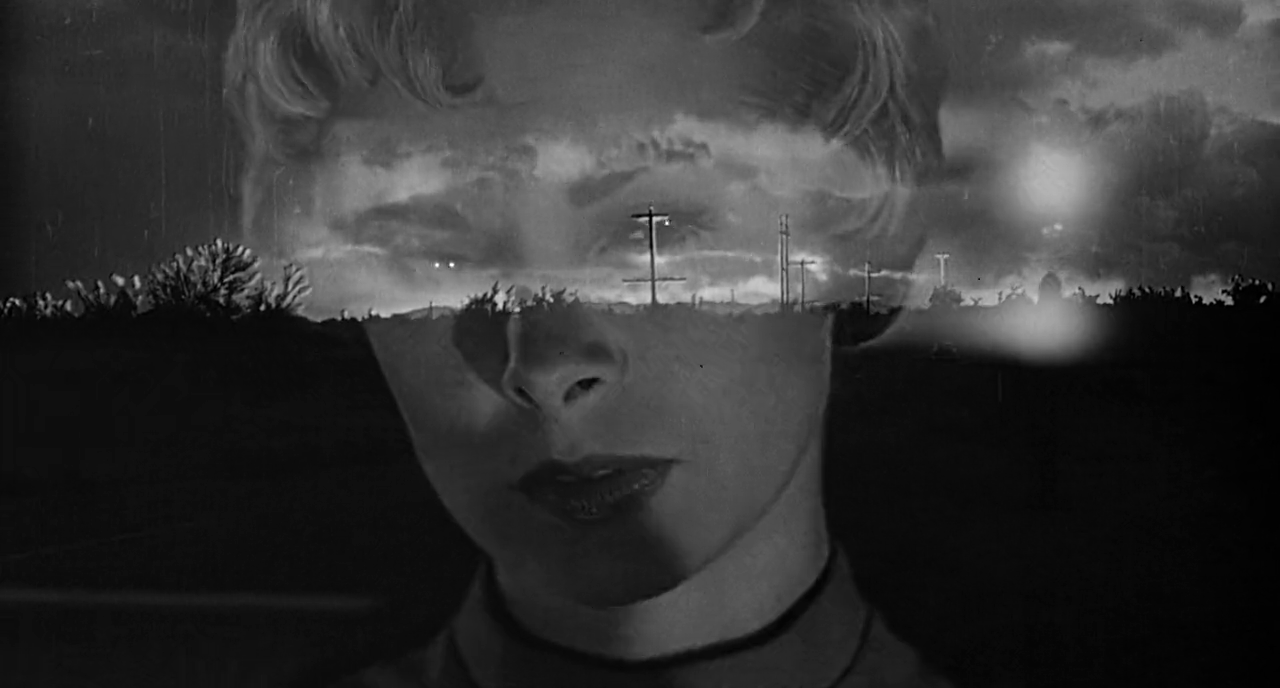
Sixty years ago today Alfred Hitchcock's Psycho premiered at the DeMille Theater, located at 701 7th Avenue in New York City. That theater, just north of Times Square, no longer exists; funny enough, given the substance they used as a substitute for blood in the film's infamous shower scene, there's a Hershey's Chocolate store located there today. I wonder what they'd think if I went in there and started spraying chocolate syrup all over myself screaming, "Oh god! Mother! Blood! Blood!" I digress. (Do I ever.) Point being it's the right moment to finally devote some "Great Moments in Horror Actressing" to the shower's favorite Scream Queen, Janet Leigh.
But I want to take Marion Crane out of the shower. She deserves it, sixty years on...
She's got to be as pruny as Mrs. Bates' shriveled basement melon by now. You look up any interview with Leigh about the film and all anybody wants to talk about is the "Shower Scene". Admittedly the shooting of that single scene took up a full one-third of her shooting time on the entire film; one week out of three. Imagine one week swallowing your entire career. One week of mostly technical work at that (which no doubt suited Hitch, who prized actors as cattle). Leigh withstood nearly thirty takes of lying prostrate on the floor trying not to blink as water trickled down her cheek and her patches of modesty fabric peeled off. And in the end half the time you're not sure if you're looking at Leigh or her body double.
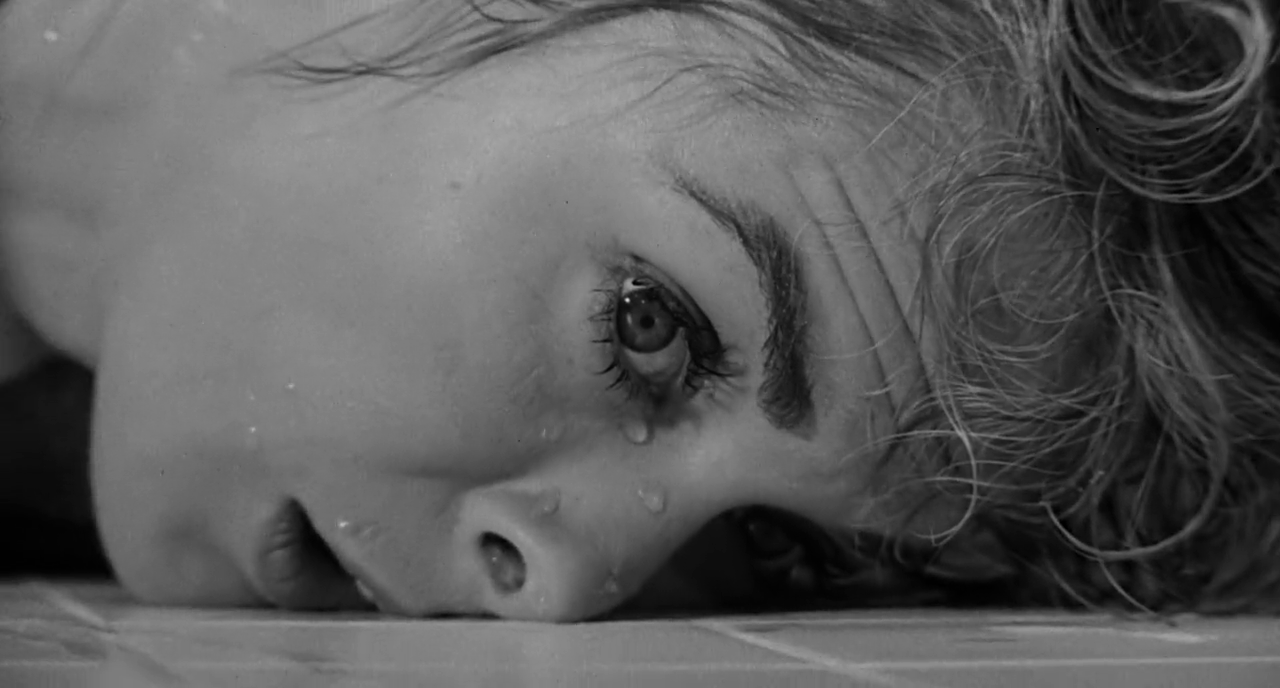
As momentous as that scene remains here in 2020, the shock it delivers lay on the shoulders of Janet Leigh's two weeks of other work -- in how she made Marion Crane into a fully realized person for the movie's first forty minutes. Shockingly complicated for the time, too -- Marion is clearly, even before the blade drops, drawn to darkness. (And John Gavin, but that's more understandable.)
We see flashes of Marion's darkness bubbling up from the start with her sly smiles, darkened eyes. Her fast quips in that hotel room rendezvous. But even as a fallible human who's allowed themselves to slip into a private trap we're still certainly quite sure, thanks to Leigh's exquisite work, that by the time that final curtain flings open on her Marion definitely doesn't deserve what rains down. Dirty secrets, petty theft, mid-afternoon nookie be damned, watching that chocolate syrup get mopped up where our Marion once stood maintains a deep scar to this day, one that no amount of frantic wiping has managed to clean away.
So much of the film's first half plays out right there across Leigh's pointed, nervous face. Think of what she does in those driving scenes, as Hermann's shrill music picks away at our nerves and Hitch layers in dialogue from Marion's imagination. She hears in her panic what the people she's left behind, her boss, her sister, might be saying. Please note how we're never gifted with Marion's own voice in these lost thoughts of hers; it's everyone else we hear swirling in her manic symphony of guilt.
But it's Marion, it is Leigh, that we see, and that's more than plenty. As much as Hitchcock might love to lay the credit on the Kuleshov effect -- where the audience projects emotions onto a blank face depending upon what the face is edited up against -- Leigh delivers Face like gangbusters. See here how Marion's nerves slough off...
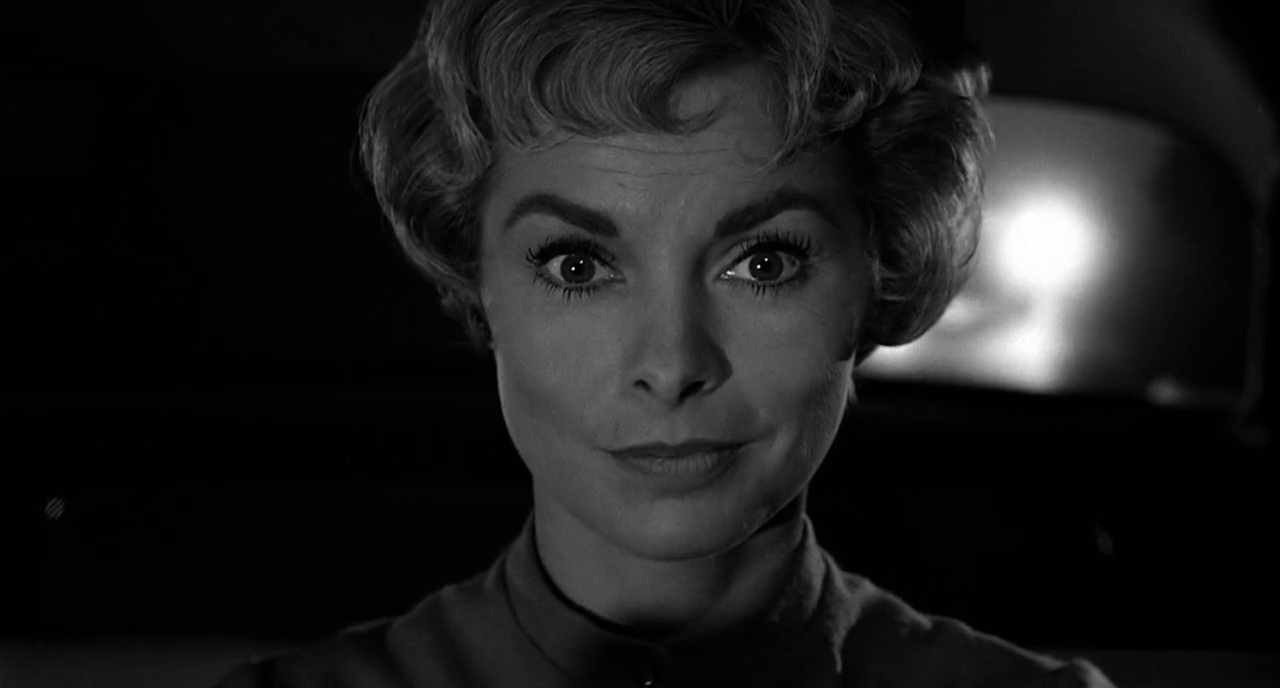
... as she imagines the voice of the rich man Mr. Cassidy (Frank Albertson) whom she's just robbed throwing a fit, threatening her "fine soft flesh." Cassidy had flirted with her shamelessly in the office as he'd flopped his cash on her desk; as nervous as she is in these moments on the run Marion is still very visibly getting off on the idea of turning the tables on this show-off who didn't take her seriously. You can watch these scenes without the sound on and you still get plenty of what you need know about how Marion got herself into this spot. We don't need any of her interior dialogue.
The fascinating thing is if you go back and watch the scene in the office where Cassidy is flirting with Marion I think you can actually pinpoint the exact moment where Marion makes her fateful choice to grab the cash and run; it's small, but a surefire flash of the woman we later see darkly smirking towards her wet night ahead. This crime of hers couldn't have been premeditated after all, since we see the circumstances present themselves as they do. So just when does Marion decide to do what she does? Well there's a shot for that.
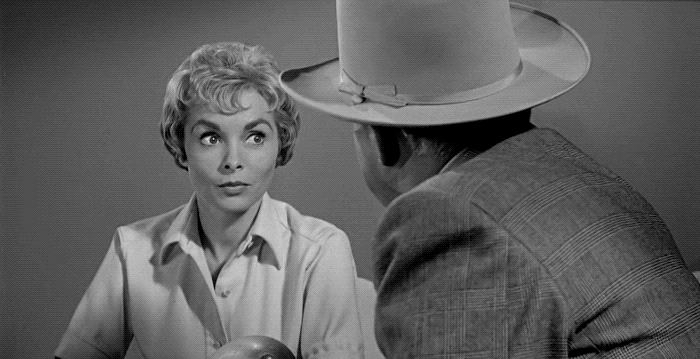
In the exact second Cassidy turns away from her -- pointedly saying the line, "You know, sometimes I can keep my mouth shut" -- we see her Nice Working Girl demeanor vanish in an instant as his body passes by the frame, a shadow passing over her now-unsmiling face. It's like one of those tricks we play on babies, changing our expression as we peekaboo out from behind our hands, only it's the dark recesses of Marion Crane and her worst life's decision peeking out. Hitch bless him can't help but visually symbolize Marion's darkening character a scene later by showing that her bra and slip have now shifted from white to black, but Leigh in the above instant had already gotten us all the way there all on her own. Marion's darkness, plain as day, beats up from within.
